Featured
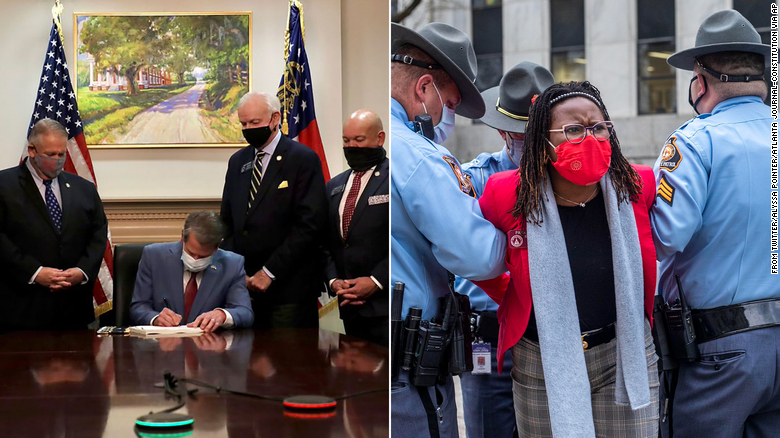 These two photos from the Georgia Capitol reveal what the state’s new voting law is all about. By John Blake / CNN
These two photos from the Georgia Capitol reveal what the state’s new voting law is all about. By John Blake / CNN
If you’re trying to figure out the impact of the new Georgia law restricting voting rights, two photographs will tell you everything you need to know. The first photo shows Georgia Gov. Brian Kemp signing the sweeping law, which many argue will make voting harder for people of color. He is sitting at a table in a stately room, flanked by six men in suits and before a portrait of what seems to be a painting of an antebellum, plantation-styled home. The second photo shows two beefy White police officers arresting a distressed-looking Black woman — Georgia state Rep. Park Cannon — after she knocked on Kemp’s office door repeatedly while he announced the signing of the bill into law. The symbolic contrast between the two images, both taken within minutes of each other Thursday evening at the Georgia Capitol, is hard to miss. Read more
Related: Calls for economic boycott grow after Georgia adopts voter restrictions. By Dennis Romero / NBC News
Related: In Georgia County, Elections Bills Have Consequences. By Stephen Fowler / NPR
Related: The High Cost of Georgia’s Restrictive Voting Bills. By Jelani Cobb / The New Yorker
Political / Social
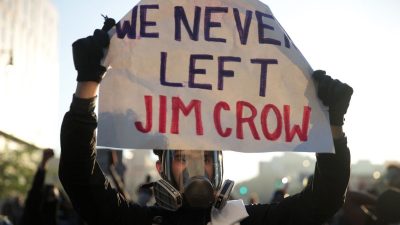 What Jim Crow looks like in 2021. By Nicole Hemmer / CNN
What Jim Crow looks like in 2021. By Nicole Hemmer / CNN
Even at its violent peak, Jim Crow had another side, one that always wore a suit and tie, especially when it came to voter disenfranchisement. Required to navigate around the 15th Amendment, which explicitly prohibited barring Black men from voting, White Southern legislators innovated a kind of colorblind racism that would go on to become the right’s preferred tool for opposing civil rights advances in the post-Jim Crow era. Looked at through that lens, the current rush to restrict voting rights is less proof of the resuscitation of Jim Crow than evidence that it never really went away. Read more
 Republicans have taken up the politics of bigotry, putting US democracy at risk. By Robert Reich / The Guardian
Republicans have taken up the politics of bigotry, putting US democracy at risk. By Robert Reich / The Guardian
People around the world witnessing the fragility of American democracy “want to see whether our democracy is resilient, whether we can rise to the challenge here at home. That will be the foundation for our legitimacy in defending democracy around the world for years to come.” That resilience and legitimacy will depend in large part on whether Republicans or Democrats prevail on voting rights. Not since the years leading up to the civil war has the clash between the nation’s two major parties so clearly defined the core challenge facing American democracy. Read more
 Raised to identify as Black, Harris steps into role as a voice for Asian Americans amid rise in hate incidents. By David Nakamura / Wash Post
Raised to identify as Black, Harris steps into role as a voice for Asian Americans amid rise in hate incidents. By David Nakamura / Wash Post
After emerging from the meeting with local Asian American leaders, Harris told reporters: “Sadly, it’s not new. Racism is real in America, and it has always been. Xenophobia is real in America, and it always has been. Sexism, too.” With President Biden standing behind her, she ticked through laws discriminating against Chinese immigrants in the 1860s, the internment of Japanese Americans during World War II and attacks against Muslim Americans after 9/11. Read more
Related: Stop Asian hate: Asian Americans across US demand reforms. By Marc Ramirez / USA Today
Related: How Vincent Chin’s Death Led To A Wave Of Asian American Activism. By Karen Grigsby Bates / NPR
Related: Attacks Blaming Asians For Pandemic Reflect Racist History Of Global Health. By Joanne Lu / NPR
 What Derek Chauvin’s trial in the death of George Floyd means for America. By Holly Bailey / Wash Post
What Derek Chauvin’s trial in the death of George Floyd means for America. By Holly Bailey / Wash Post
Imagine living alone in a room the size of a freight elevator for almost two decades. As a 15-year-old, I was condemned to long-term solitary confinement in the Florida prison system, which ultimately lasted for 18 consecutive years. From 1992 to 2010. From age 15 to 33. From the end of the George H.W. Bush administration to the beginnings of the Obama era. For 18 years I didn’t have a window in my room to distract myself from the intensity of my confinement. I wasn’t permitted to talk to my fellow prisoners or even to myself. I didn’t have healthy, nutritious food; I was given just enough to not die. Read more
Historical / Cultural
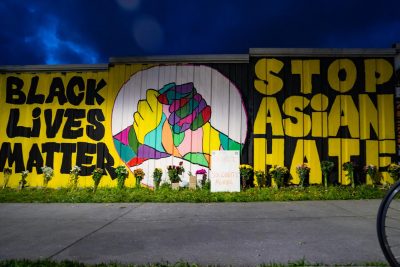 Why don’t we treat Asian American history the way we treat Black history? By Michael Eric Dyson / Wash Post
Why don’t we treat Asian American history the way we treat Black history? By Michael Eric Dyson / Wash Post
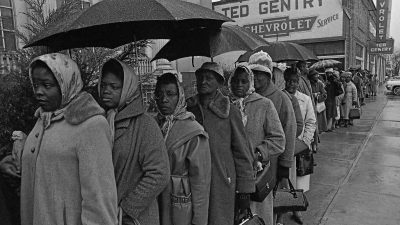 Georgia voting: Why these slave narratives compiled after the Civil War are more relevant than ever. By Eva Rothenberg / CNN
Georgia voting: Why these slave narratives compiled after the Civil War are more relevant than ever. By Eva Rothenberg / CNN
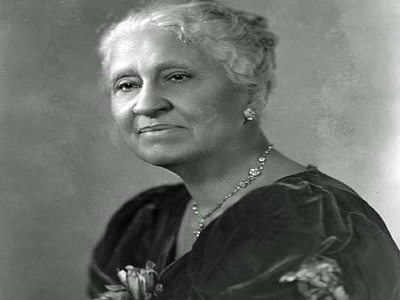 The Life and Work of Mary Church Terrell. By Malaurie Pilatte / AAIHS
The Life and Work of Mary Church Terrell. By Malaurie Pilatte / AAIHS
Alison M. Parker’s Unceasing Militant: The Life of Mary Church Terrell is the first full-length biography of Terrell and fills a vital gap in our knowledge of nineteenth and twentieth century Black activism. Although Terrell’s life and work spanned almost a century (1863-1954), her contributions to racial and gender equality in the U.S. and abroad have remained underexplored. Read more
 Sure, erase the names of history’s racists. That won’t undo their messes. By
Sure, erase the names of history’s racists. That won’t undo their messes. By
 Charlottesville mayor’s poem about city, racism ‘hits nerve.’ By Ben Finley / AP and ABC News
Charlottesville mayor’s poem about city, racism ‘hits nerve.’ By Ben Finley / AP and ABC News
America’s Black politicians have a long history of calling out the nation’s racism. But few have taken to poetry and written that their city is “void of a moral compass” and “rapes you of your breaths.” Nikuyah Walker, the first Black woman to be mayor of Charlottesville, Virginia, has posted poetry on Twitter and Facebook that has drawn national attention for descriptions of a picturesque college town that is indelibly linked to a slave-owning U.S. president and a deadly white nationalist rally. Read more
 Capturing how Aretha Franklin could “alchemize her pain into sonic gold.” By Melanie McFarland / Salon
Capturing how Aretha Franklin could “alchemize her pain into sonic gold.” By Melanie McFarland / Salon
“Genius: Aretha” is an eight-episode work Parks brings to life through executive producer and director Anthony Hemingway and most crucially through the astronomical talent of Cynthia Erivo’s personification of Aretha Franklin. Erivo sings on all the limited series’ tracks, but she channels Queen of Soul through every note – interpretive genius layered atop of the story of an extraordinary person. Brian Grazer and Ron Howard selected Franklin as the third subject for their National Geographic series following seasons celebrating Albert Einstein and Pablo Picasso, and after drawing criticism for featuring two white men to personify the term for two seasons in a row. Read more
Sports
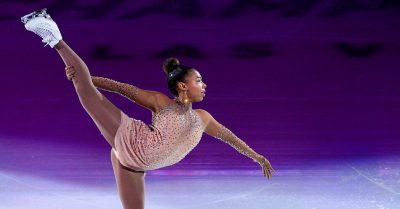 With Captivating Performances, Black Figure Skaters Strike More Than Gold. By Patrice Peck / NYT
With Captivating Performances, Black Figure Skaters Strike More Than Gold. By Patrice Peck / NYT
Starr Andrews remembers the stares she received in locker rooms at her earliest figure skating competitions. She remembers the requests to touch her coiled, textured hair. Videos of her performance have received more than 200,000 views online. Fans include Guyton and Michelle Obama, who shared one of the videos and wrote: “To all the Black kids out there striving for excellence in the face of those who doubt you: Keep going.” Read more
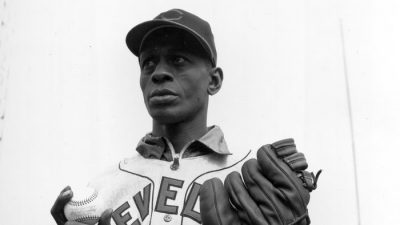 How Black Players Propelled Cleveland To A 1948 World Series Win. By Scott Simon / NPR
How Black Players Propelled Cleveland To A 1948 World Series Win. By Scott Simon / NPR
A few months after Jackie Robinson broke modern baseball’s color barrier in 1947, Larry Doby became the first Black player in baseball’s American League. A year later, Satchel Paige joined the Cleveland Indians as the team’s second Black player. The two Black players, and the team owner’s willingness to sign them, propelled Cleveland to win the World Series in 1948 in one of baseball’s most notable seasons. It’s the story told in Luke Epplin’s new book, Our Team: The Epic Story of Four Men and the World Series That Changed Baseball. Read more
 Charli Collier of Texas Honors Her Father’s Memory With Resilience. By Giullian R. Brassil
Charli Collier of Texas Honors Her Father’s Memory With Resilience. By Giullian R. Brassil
Charli Collier has spent her last season in college basketball adjusting to a new coach, to a coronavirus-safe form of training, to disrupted classes and to conferring with her teammates over video calls. All the while, she coped with the expectation that she would become the top pick in the next W.N.B.A. draft. Read more
 From prized QB to pariah: What don’t we know about the Deshaun Watson situation? By William C. Rhoden / The Undefeated
From prized QB to pariah: What don’t we know about the Deshaun Watson situation? By William C. Rhoden / The Undefeated
One month ago, Houston Texans quarterback Deshaun Watson was considered a paragon of virtue and a coveted commodity. Football analysts were singing Watson’s praises as a rare talent and franchise player beloved by teammates. In the realm of players’ rights and player activism, Watson was an emerging hero of player resistance. In a public and protracted battle with the Texans, whom Watson accused of reneging on a promise to include him in personnel decisions, Watson demanded a trade. He seemed to have the franchise in a bind. A month later, Watson’s name is muddied and his options have shrunk to near zero. In the last week, more than 20 women have stepped forward to accuse Watson of sexual assault and misconduct in connection. Questions outweigh answers. Read more
Site Information
Visit our home page for more articles, book/podcast and video favorites. And at the top of this page register your email to receive notification of new editions of Race Inquiry Digest. Click here for earlier Digests.
About Race Inquiry and Race Inquiry Digest. The Digest is published on Mondays and Thursdays.
Use the buttons below to share the Digest in an email, or post to your Facebook, Linkedin or Twitter accounts.
 Researchers put a number to the lives lost due to Trump’s mishandling of the pandemic: 400,000. By Mark Summer / Daily Kos
Researchers put a number to the lives lost due to Trump’s mishandling of the pandemic: 400,000. By Mark Summer / Daily Kos  Trump tried to defund DOJ peacemakers used to ‘repair race relations.’ By Kevin Johnson / USA Today
Trump tried to defund DOJ peacemakers used to ‘repair race relations.’ By Kevin Johnson / USA Today Pelosi Names D.C. National Guard Commander As New House Sergeant-At-Arms. By Barbara Sprunt / NPR
Pelosi Names D.C. National Guard Commander As New House Sergeant-At-Arms. By Barbara Sprunt / NPR A Volunteer Army’s Mission: Vaccinate Black People in the Rural South. By Andrew Jacobs / NYT
A Volunteer Army’s Mission: Vaccinate Black People in the Rural South. By Andrew Jacobs / NYT Agriculture Secretary Tom Vilsack says only 0.1 percent of Trump administration’s covid farm relief went to Black farmers. By Laura Reiley / Wash Post
Agriculture Secretary Tom Vilsack says only 0.1 percent of Trump administration’s covid farm relief went to Black farmers. By Laura Reiley / Wash Post Maryland to Pay Four Black Colleges $577 Million. By Douglas Belkin / WSJ
Maryland to Pay Four Black Colleges $577 Million. By Douglas Belkin / WSJ The Social Justice Purge at Idaho Colleges. By Michelle Goldberg / NYT
The Social Justice Purge at Idaho Colleges. By Michelle Goldberg / NYT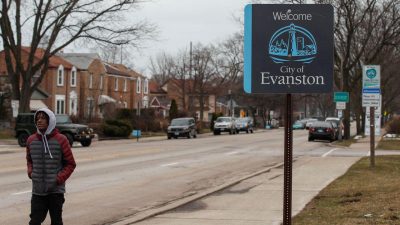 Evanston is the first U.S. city to issue slavery reparations. Experts say it’s a noble start. By Char Adams / NBC News
Evanston is the first U.S. city to issue slavery reparations. Experts say it’s a noble start. By Char Adams / NBC News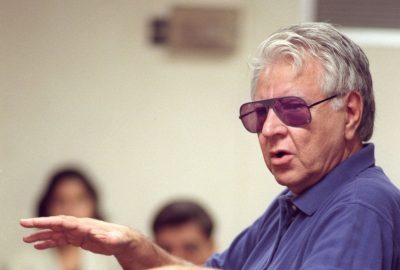 Ethnic studies pioneer Rudy Acuña on neoliberalism, Trump and the future of academia. By Jeff Biggers / Salon
Ethnic studies pioneer Rudy Acuña on neoliberalism, Trump and the future of academia. By Jeff Biggers / Salon  I Survived 18 Years in Solitary Confinement. By Ian Manuel / NYT
I Survived 18 Years in Solitary Confinement. By Ian Manuel / NYT